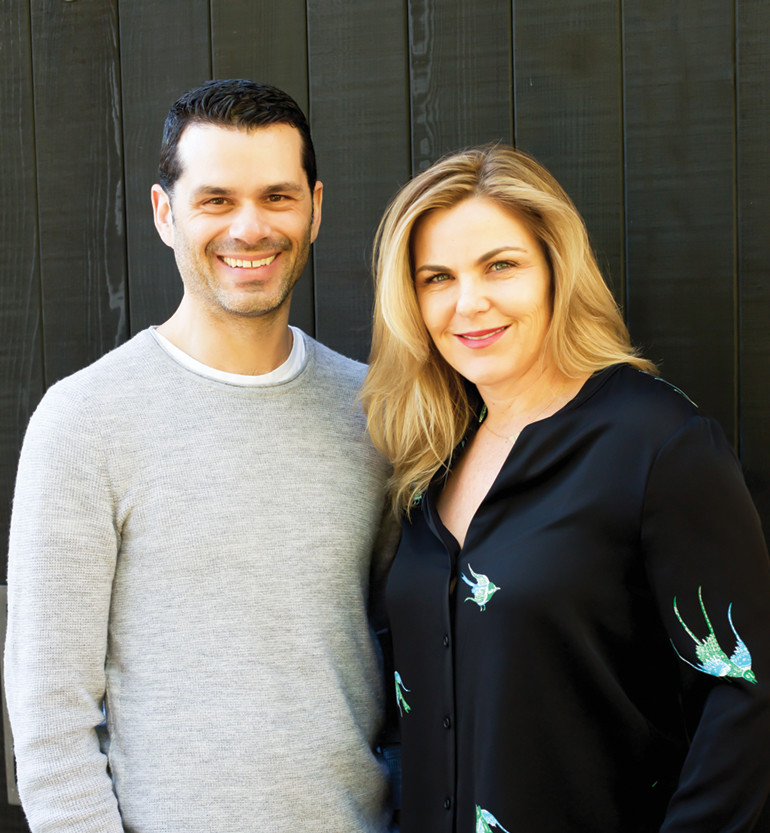Bay Area chefs, restaurant owners, food business entrepreneurs, and others in the culinary sphere are important drivers in changing our world through what we eat (and doing it in a tasty way). From reducing carbon emissions (which is responsible for 17% of the total carbon emissions worldwide) to redistributing food that might otherwise be thrown out, the Bay Area food community is leading the way on making changes to how we consume food. Here are a few of the names you should know.
1. Meg and Zach Adelman, Navitas Organics
Sixteen years ago, Meg and Zach Adelman founded Navitas Organics with the bedrock belief that organic agriculture is better for planet and people. Since then, the Adelmans have doubled down on their commitment to improving the planet’s health, committing to supporting traditional farming practices around the world. “Traditional farming is naturally regenerative,” Meg says, “it mimics nature’s design, farming without agrochemicals or intensified practices.”
Meg, in partnership with Lily Riesenfeld of The Pad Studios, launched the first Futurewell wellness summit in 2019 to drive awareness of the importance of regenerative, organic agriculture and bring stakeholders together to build a broad community to facilitate needed changes in how products are made and consumed. Plans are in the works for Futurewell 2020.
2. Kenny Beslov and Rocky Burns, TwoXSea
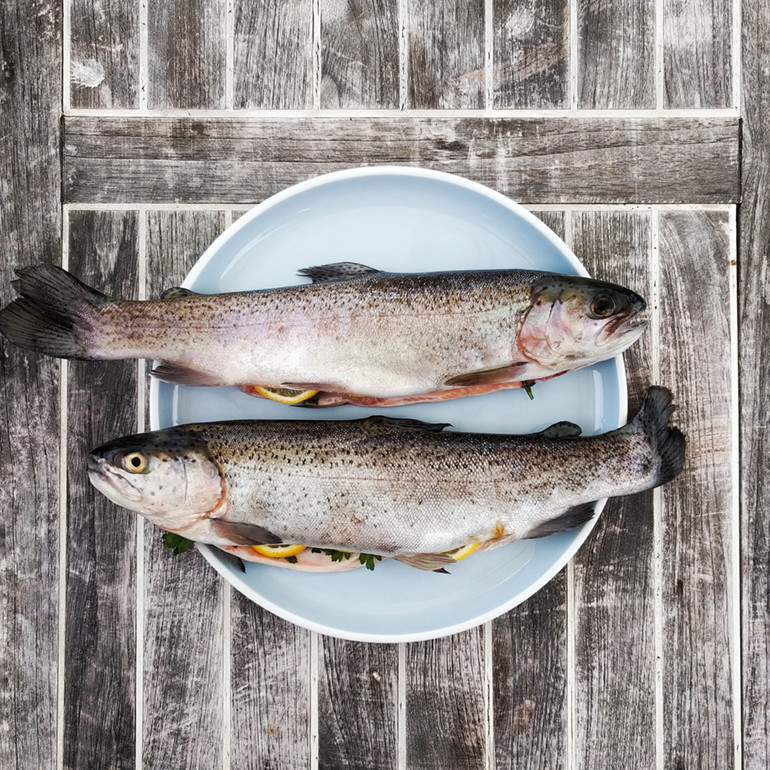
Pioneers in providing transparency to consumers about where fish and seafood comes from and how it is sourced, Kenny Beslov and Rocky Burns changed how Bay Area eaters consume the ocean’s bounty. Their company, TwoXSea, helped alter the way seafood is farmed, caught, and handled, from fishery to plate, helping ensure a healthy future for the ocean and its inhabitants. For their first 10 years in operation, the duo’s Sausalito restaurant, Fish, was the only place to purchase their sustainable seafood. More recently, they began a partnership with Good Eggs and also launched sales on their own retail website named, naturally, TwoXSea.
3. Birgit Cameron, Patagonia Provisions
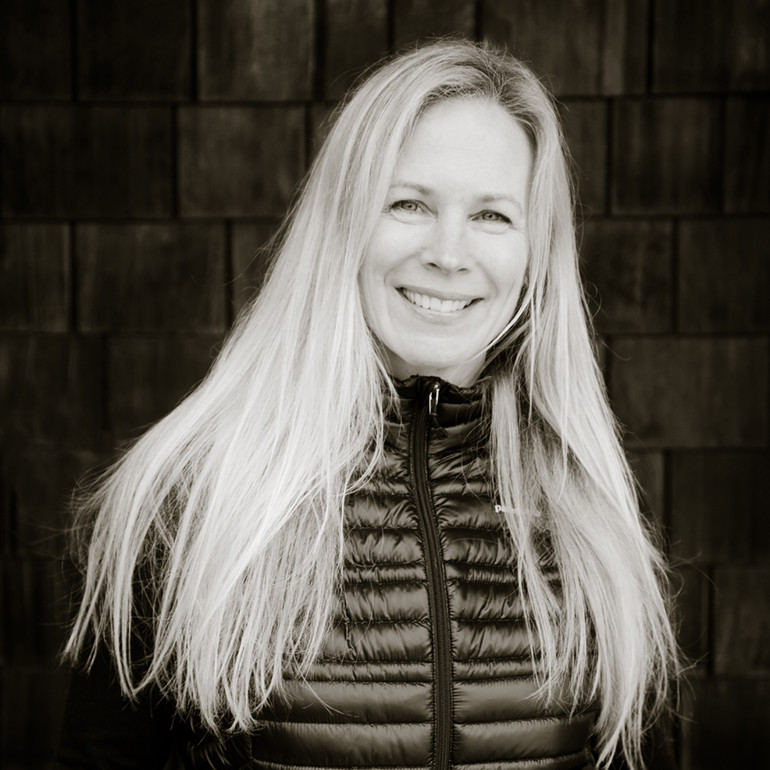
The iconic outdoor apparel company’s food subsidiary, Sausalito-based Patagonia Provisions (headed by managing director Birgit Cameron) is focused on ethically and responsibly sourced food, pioneering regenerative agriculture practices across food sources as means to not only store carbon in the soil but reduce carbon produced in the food chain. Its buffalo jerky helps restore the grasslands of the Great Plains, wild Lummi Island pink salmon is harvested using reef nets, an ancient selective harvesting technique, and a new perennial “superwheat,” Kernza, in beers called Long Root Ale and Long Root Wit. Patagonia Provisions’ new honey comes from a Pu’u O Hoku ranch in Hawaii and supports an independent colony of pollinators.
4. Dominique Crenn, Atelier Crenn, Bar Crenn and Petit Crenn
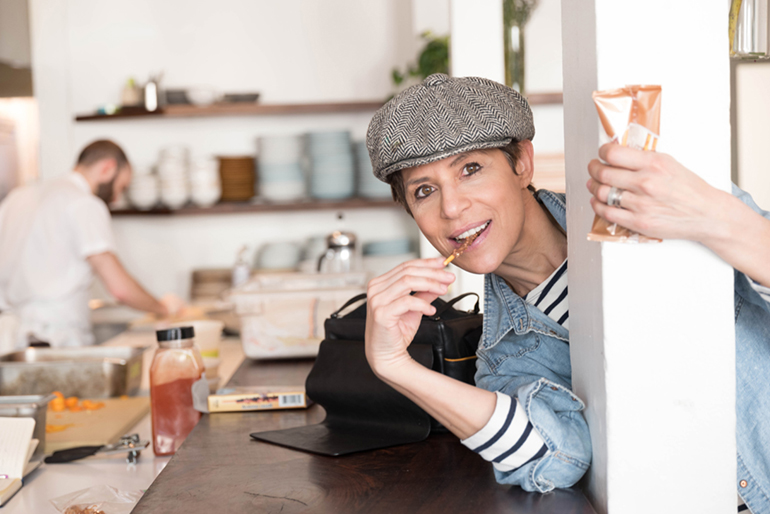
Dominique Crenn made history in 2012 when she won two Michelin stars for her work at San Francisco’s Atelier Crenn, her eponymously named restaurant, and then broke her own record, when the restaurant then received its third Michelin star in 2018. But Crenn is widely recognized for her efforts to impact social change. A tireless advocate for equal rights for all through her collaboration with organizations such as the Pan American Development Foundation, she remains an outspoken member of the international culinary community, promoting innovation, sustainability, and equality. At the Basque Culinary Center awards ceremony earlier this year, Crenn urged attendees to “wake up” to climate change while committing to make her restaurants zero waste and committing to adding zero plastic bottles to the waste stream. Crenn was recently featured on an episode of Netflix’s “Chef’s Table“.
Dominque is also suffering from breast cancer, and has been fearless in sharing her experiences and working to dispel stigmas by posting images of her journey on Instagram.
5. Sammy and Kari Hagar, Sammy’s Beach Bar and Grill
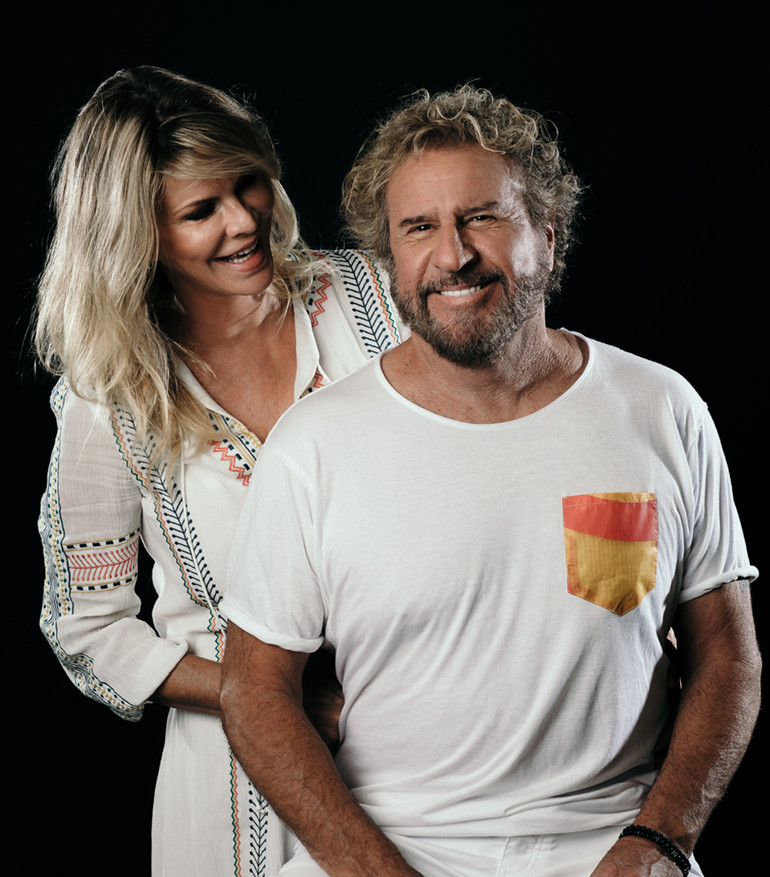
Longtime Bay Area resident Sammy Hagar leapt to fame as lead singer of Van Halen, but his restaurant success is what first fueled his philanthropic pursuits. Hagar and his wife, Kari, started the Hagar Family Foundation after selling 80 percent of his tequila and restaurants brand, Cabo Wabo, for $80 million in 2007. Hagar owns three restaurant chains: Cabo Wabo Cantina, Sammy’s Beach Bar and Grill and Sammy’s Red Rocker Bar and Grill, and he still earns money playing shows. All of these ventures fuel the foundation’s activities, ensuring it continues to make an impact. Hagar support a wide variety of causes across the Bay Area, ranging from arts to medical causes, such as his support for the UCSF Foundation.
6. Bentley Hall, Good Eggs
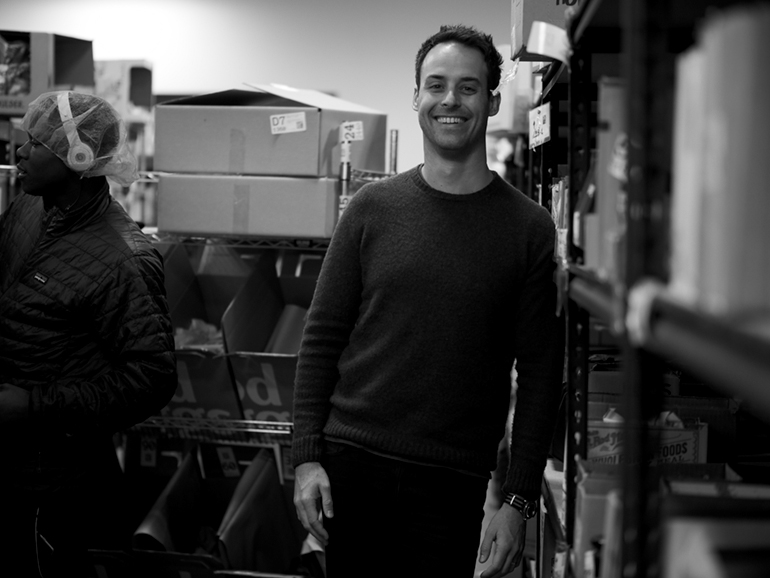
Great-tasting products sourced from businesses with impeccable standards may sound like an uncompromising position but Good Eggs, the Bay Area grocery delivery service lead by CEO Bentley Hall, believes that there should be no boundaries between your values and your wallet. The company works with everyone from small farms and ranches to national wine and spirits houses committed to the same principles.
Beyond the core value proposition, the company strives to give back, partnering with Bay Area schools to help them raise funds (they are currently on track to hit nearly $500, 000 in donations by the end of November), aids food recovery efforts which it gives to the SF-Marin Food Bank, and supports community organizations, such as Project Wreckless, a life skills program in San Francisco for at-risk kids, for which it provides dinner for the kids.
In a major effort to reduce its packaging waste, Good Eggs is now recycling the ice packs included with delivery orders. With help from the packs’ manufacturer, the gel from the packs is drained and reused in new packs, eliminating a significant portion of the waste associated with food delivery and helping ensure a sustainable future for food delivery.
7. Laurence Jossel, NoPa and NoPalito
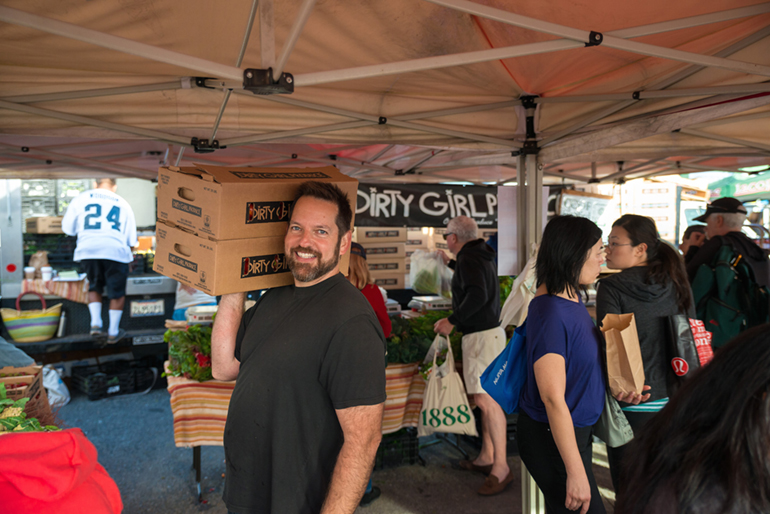
Chef and restaurateur Laurence Jossel wants you to talk to your neighbor. Jossel runs The Civic Table, a project designed for community engagement, a space where the hard questions about our civic, spiritual, and economic responsibilities of living in the Bay Area, a region of intense economic disparities, can be asked. Jossel commits his resources to additional community engagements, such as CUESA, the Yolo County Land Trust, and the Access Institute, which helps ensure everyone has access to high-quality mental health services.
8. Dan Kurzrock, Regrained
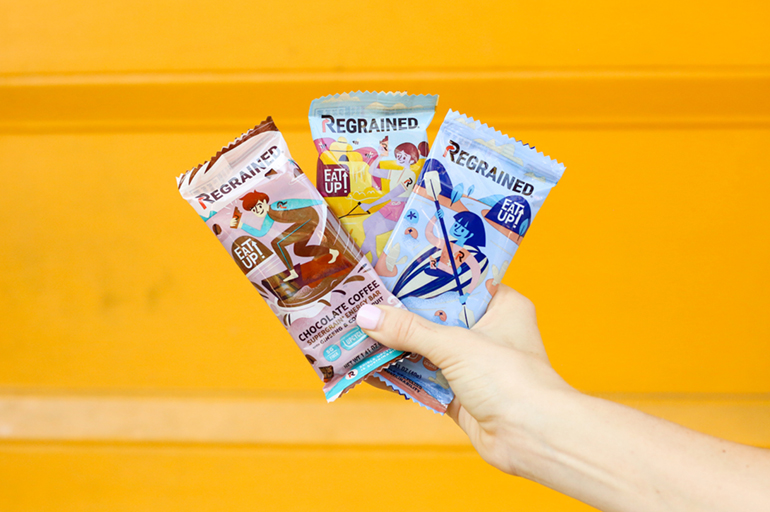
Fighting food waste through edible upcycling is the goal of Berkeley’s Regrained. Helmed by Daniel Kurzrock, the company takes the nutritious, prebiotic-friendly grains used in brewing and repurposes this “food waste” into energy bars, like their Chocolate Coffee Bar. In January, 2020, a line of puffs, made from a flour milled from the grain, will be available nationally and Kurzrock is currently in the product testing phase for 100% compostable product packaging.
Local projects that use Regrained’s flour are also in the works. North Bay Pretzel launched a line of pretzels made with Regrained flour and a fresh pasta made with their flour is now available at the Pasta Shop at Market Hall Foods in Oakland.
9. Anthony Myint and Karen Liebowitz, Zero Foodprint and the Perennial Farming Initiative
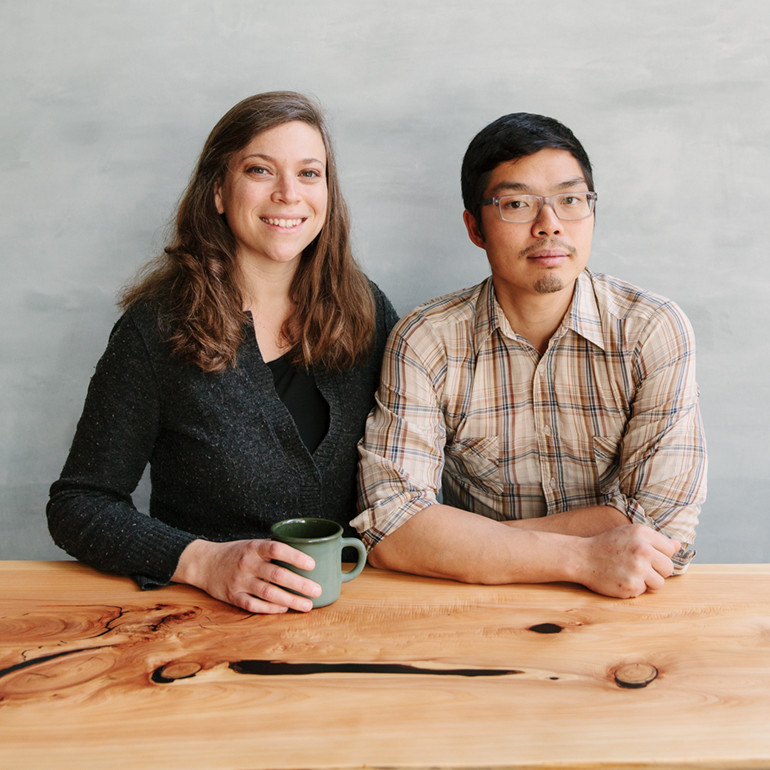
Through a collaborative effort between ZeroFoodprint and Perennial Farming Initiative (PFI), husband and wife team Anthony Myint, (also known as the chef/founder at Mission Chinese Food) are tackling the climate crisis, one restaurant at a time. Myint, who recently received the Basque Culinary World Prize (an “award for chefs transforming society through gastronomy in areas ranging from innovation to education, health, research, sustainability, social entrepreneurship and economic development”), helps chefs and restaurateurs figure out how to assess, reduce, and get carbon out of their supply chain and operations.
An upcoming collaboration with the State of California tackles the problem of reducing food’s carbon footprint at scale. Restore California aggregates a few cents per restaurant meal in a ground-breaking offset program to fund carbon farming across the state, helping to return our food system to optimal health.
10. Lisa and Loren Poncia, Stemple Creek Ranch
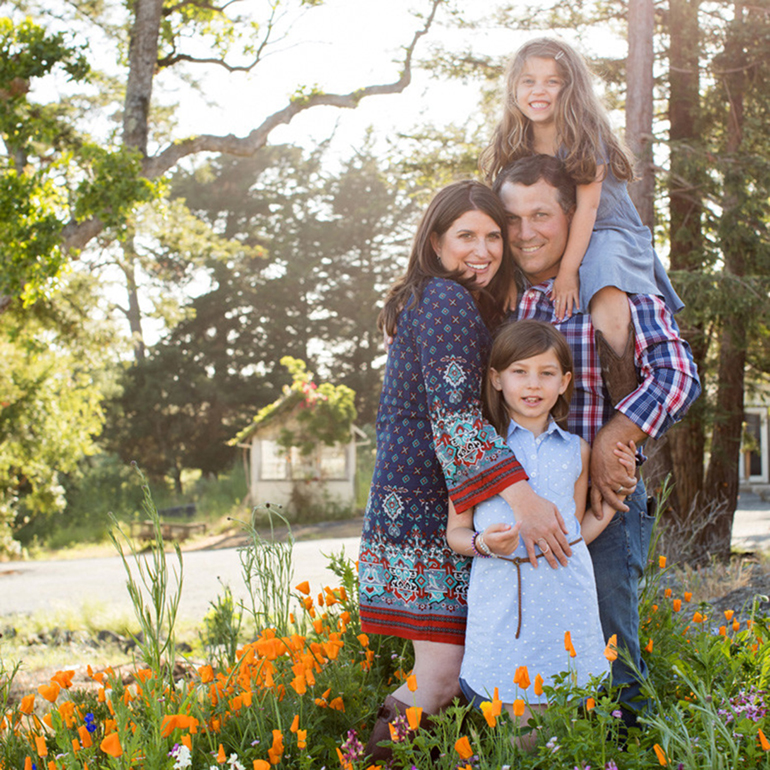
West Marin’s Stemple Creek Ranch produces grass-fed and grass-finished beef and lamb on organic pastureland. Hosts of the recent Futurewell summit, the thousand acre ranch is actively engaged as a test study for the Marin Carbon Project, assessing carbon farming projects that leave carbon in the soil and support natural forage. These efforts can harness the carbon in the atmosphere, effectively reversing the effects of climate change caused by putting carbon into the atmosphere.
As fall transitions to winter, that means seeding pastures, spreading compost, and planting a hedgerow to help bring more diverse species and pollinators. And, yes, hoping for rain to bring water to the pastures and launch the growing season. Green grass equals happy cows, you know.
11. Albert Straus, Straus Family Creamery
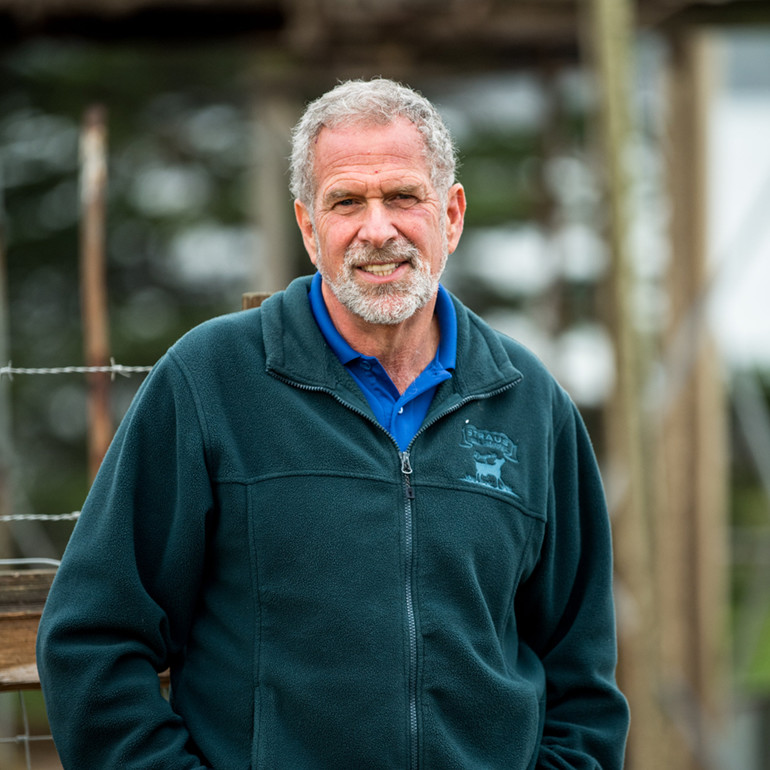
Operating the first 100% organic creamery and dairy farm in the western United States, Straus Family Creamery organized itself around the principle that land stewardship meant preserving the land for future generations of farmers. Since then, Founder and CEO Albert Straus and his family have upped the ante, committing to the humane treatment of animals and the non-GMO project to help ensure a sustainable seed supply. They are steadfastly committed to glass bottles, developing a return and reuse program that has kept 80% of their containers out of landfills. In parched California, all creamery water is reused and the creamery purchases 100% renewable electricity from non-polluting, Green-e Energy certified wind and solar power sources in California through a partnership with Marin Clean Energy’s Deep Green Renewable Program.
Their pioneering efforts continue into their 25th year of environmental leadership; the company installed a methane digester that captures methane, one of the worst greenhouse gases and the main gas produced by cows, and turns it into electricity, enough for the entire farm. That is some serious cow power!
12. Alice Waters, Chez Panisse
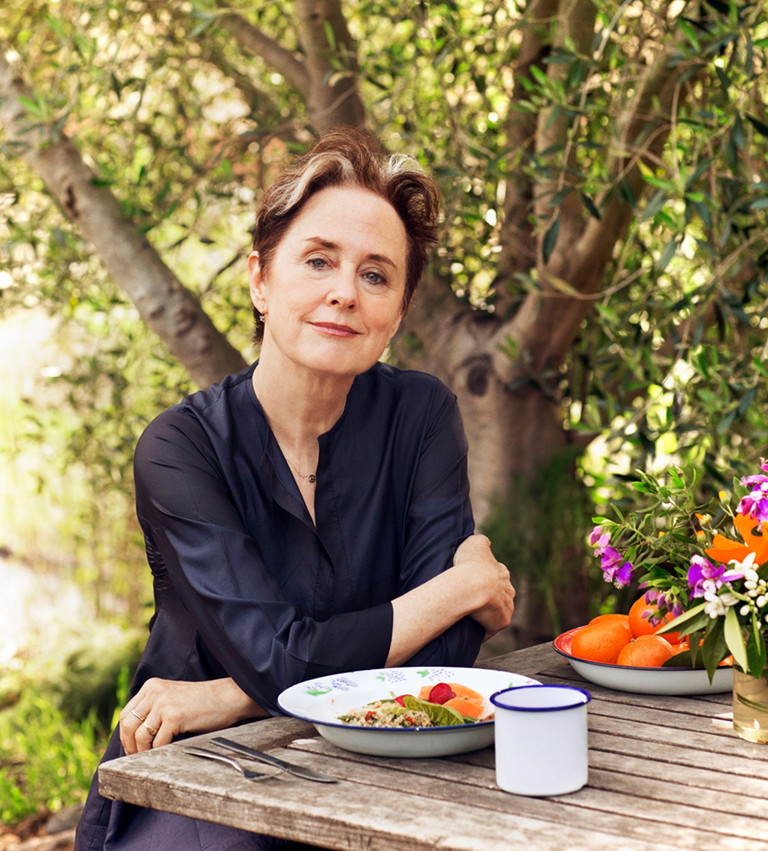
Alice Waters, who was knighted into the Cavaliere dell’Ordine al Merito della Repubblica Italiana in January, 2019, is a remarkable force for social change. Her ground-breaking California restaurant, Chez Panisse, which kick-started the farm-to-table movement, is about to mark its 50th year. Her Edible Schoolyard Project, which works to bring free, regenerative, school lunches to all students K-12 throughout public schools in California, is approaching its 25th anniversary.
Beyond Chez Panisse and Edible Schoolyard, Waters has reupped her social impact goals, developing a new holistic school food experience that remodels how school food is sourced, prepared, and consumed at 16 schools in Stockton, Ca., as a model to shift the school food experience. Plans are also in the works to build out the Alice Waters Institute for Edible Education at UC Davis to integrate the idea that cafeterias can serve as a classroom and nourishing meals can be an integral part of the academic curriculum. Eating in the cafeteria will become part of the student’s academic instruction, activating the cafeteria into a thriving place of learning.
The only question that remains is: what’s next, Alice?
13. Sean Wittenberg and Bryan Boches, Safe Catch
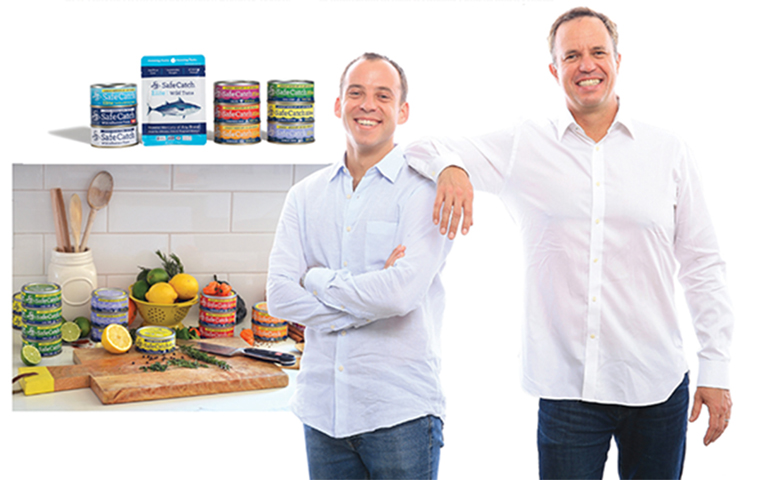
Marin natives Sean Wittenberg and Bryan Boches founded Sausalito-based Safe Catch to allow on-the-spot testing for mercury in tuna. When tuna companies proved to be disinterested in the idea of making tuna safer to eat, the men set out to build their own canned tuna business, launching safer tuna into more than 5,000 stores nationwide. With many varieties of tuna and salmon to choose from, including albacore and ahi, Safe Catch is committed to testing each and every fish before it is cleared for human consumption, making the eating of fish a low-risk proposition for even those who are most vulnerable to mercury’s negative impacts.
14. Marv Zauderer, ExtraFood
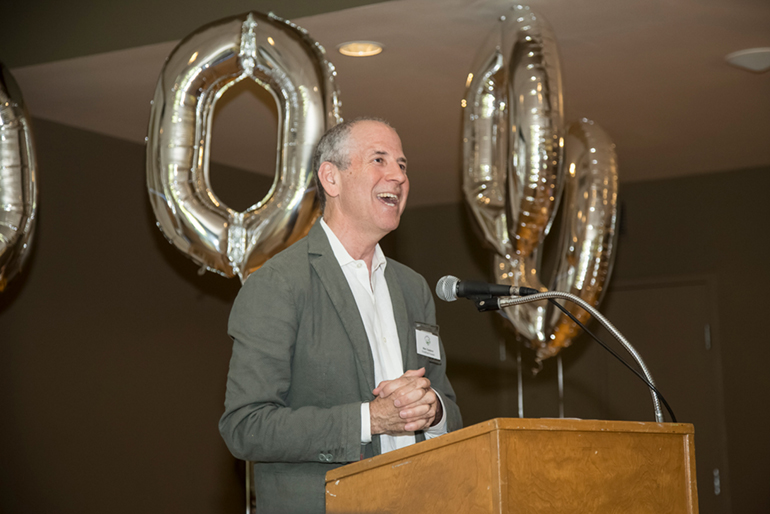
By repurposing wasted food to feed Marin’s hungry, Marv Zauderer achieved two important goals: converting the excess bounty of the local food shed (including restaurants, supermarkets, hospitals and countless other food-generating businesses) to feed the region’s hungry and eliminating the carbon released from this so-called extra food when it hits landfills. During the latest Northern California wildfires, ExtraFood rescued food from organizations that lost power and redelivered it to those affected by the outages.
Zauderer encourages everyone to learn ways to reduce food waste, including working with ExtraFood, by reading this article.
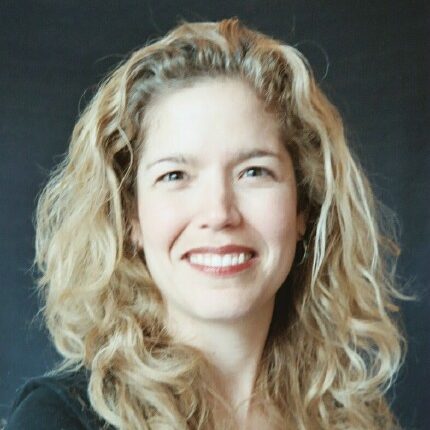 Christina Mueller is a long-time Bay Area food writer. She hails from the East Coast and has spent way too much time in South America and Europe. She discovered her talent as a wordsmith in college and her love of all things epicurean in grad school. She has written for Condé Nast Contract Publishing, Sunset, and the Marin Independent Journal, among others. She volunteers with California State Parks and at her child’s school, and supports the Marin Audubon Society, PEN America, and Planned Parenthood. When she is not drinking wine by a fire, she is known to spend time with her extended family.
Christina Mueller is a long-time Bay Area food writer. She hails from the East Coast and has spent way too much time in South America and Europe. She discovered her talent as a wordsmith in college and her love of all things epicurean in grad school. She has written for Condé Nast Contract Publishing, Sunset, and the Marin Independent Journal, among others. She volunteers with California State Parks and at her child’s school, and supports the Marin Audubon Society, PEN America, and Planned Parenthood. When she is not drinking wine by a fire, she is known to spend time with her extended family.
